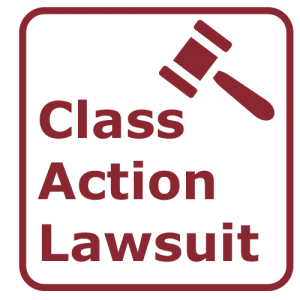Lawful Insight: Navigating the Landscape of Class Action Lawsuit Situations
Lawful Insight: Navigating the Landscape of Class Action Lawsuit Situations
Blog Article
Trick Variables to Think About in Course Activity Legal Actions: Insights for Legal Representatives
Class action suits can be tough and intricate for legal representatives to browse. From class qualification requirements to damages calculations and settlement negotiations, there are several essential variables that require to be carefully considered. Understanding these factors and their implications is essential for lawyers aiming to properly represent their customers in class activity claims. By diving into the details of course action litigation, this conversation aims to offer important understandings for attorneys seeking to navigate this intricate lawful landscape.
Course Qualification Demands
To proceed with a course action lawsuit, legal representatives have to navigate through a collection of strict course accreditation requirements. Class qualification is a crucial phase in the litigation procedure that determines whether a team of complainants can be certified as a course and proceed with their cases collectively. These needs serve to guarantee that course activities are effective and appropriate mechanisms for fixing disputes including numerous complainants.
One of the main needs for class qualification is numerosity. This standard demands that the course be so numerous that joinder of all participants is unwise. While there is no fixed mathematical limit, courts usually think about a course with greater than 40 participants as completely various. Furthermore, commonness is another crucial consider course certification. It needs that there are inquiries of regulation or reality common to the course, which need to predominate over individual concerns.
Competence of depiction ensures that the representatives will rather and appropriately secure the rate of interests of the class participants. A course action should additionally please the requirement of prevalence, indicating that a class action is an exceptional technique for adjudicating the dispute compared to various other readily available techniques.
Navigating via these class qualification demands can be challenging and complicated for lawyers. Nonetheless, understanding and meeting these needs are vital to effectively seek a class activity suit on part of a group of complainants.

Commonality of Claims
The following vital variable to take into consideration in the course qualification process is the commonality of insurance claims among the complainants. Commonality describes whether the class participants share comparable legal concerns and concerns of reality that can be solved collectively. In other words, it is essential to identify if there are common concerns of law or reality that are central to the lawsuits and that predominate over any kind of individual concerns.
To establish commonness, the plaintiffs need to demonstrate that there are lawful or factual problems that prevail to the entire course. This can be accomplished by identifying an usual course of conduct or a typical lawful theory that underlies the cases (Class action lawsuit). The presence of usual questions is necessary because it advertises judicial performance and economic climate by permitting a single choice to resolve the problems for the whole course
However, it is necessary to note that the commonality need does not demand that all the individual insurance claims equal. Differences in damages or private situations do not necessarily defeat commonness if there are still usual questions that bind the class together.

Problems Calculations
One critical aspect to think about when determining problems in class action claims is the exact assessment of monetary losses sustained by the course members. In order to figure out the ideal quantity of compensation, it is needed to review the level of injury suffered by each individual within the class. This can be a complex task, as it needs a thorough analysis of various factors, such as the nature and duration of the harm, the financial impact on the affected individuals, and any type of other relevant considerations.
When analyzing financial losses, it is crucial to think about both the indirect and straight damages suffered by the course participants. Direct problems refer to the actual out-of-pocket expenses sustained as a result of the defendant's activities.
To determine problems precisely, legal representatives need to gather thorough evidence, consisting of financial documents, expert viewpoints, and testimonies from the class participants. They may additionally need to involve financial and monetary professionals that can supply understandings into the lasting financial ramifications of the injury suffered.
Negotiation Settlements
Throughout settlement negotiations, lawyers must take part in mindful and strategic discussions to reach an equally reasonable resolution for all parties associated with the course activity lawsuit (Class action lawsuit). Settlement arrangements are a crucial phase in the lawsuits procedure, where the events attempt to get to a concession without mosting likely to test. These negotiations need lawyers to utilize their arrangement abilities, legal expertise, and understanding of the case's staminas and weaknesses
One crucial variable to consider during settlement arrangements is the potential risks and costs related to proceeding to test. Lawyers have to carefully evaluate the possibility of success at trial and weigh it against the possible advantages of a negotiation. They need to additionally take into consideration the possible time and sources that would certainly be needed to undergo a trial, as well as the prospective adverse attention that can result from a public test.
One more essential factor is the interests and problems of the course members. Lawyers need to recognize what the course participants want to achieve via the legal action and just how a settlement can address their complaints. By thinking about the class participants' point of views and talking to them throughout the settlement process, lawyers can much better support for their interests and make sure that any kind of negotiation gotten to is sufficient and reasonable.
Additionally, attorneys must be prepared to work out with the opposing celebration and their lawful reps. This requires a deep understanding of the toughness and weaknesses of both sides' disagreements and a readiness to compromise. Knowledgeable mediators can utilize this knowledge to find usual ground and craft imaginative remedies that meet the needs of all events included.
Reliable Client Representation
To properly represent their customers in class action lawsuits, attorneys have to have a detailed understanding of the instance and carefully supporter for their customers' interests. Reliable customer depiction calls for legal representatives to establish open lines of communication and maintain a solid attorney-client partnership throughout the whole litigation process.
Most importantly, legal representatives must completely examine the truths, legal issues, and prospective threats connected with the instance. This consists of performing an in-depth investigation, evaluating pertinent files, and talking to professionals if essential. By gaining a deep understanding of the case, lawyers can establish a tactical approach tailored to their customers' objectives and demands.
Furthermore, attorneys have to actively advocate for their customers' passions during all phases of the lawsuit. This involves preparing convincing lawful disagreements, carrying out complete research study, and offering compelling proof to support their customers' claims. Lawyers must likewise remain informed regarding recent growths in course action regulation and use this expertise to reinforce their clients' settings.
In enhancement to legal campaigning for, efficient client representation includes giving routine updates, responding to inquiries, and attending to any type of worries that clients might have. Lawyers should be proactive in keeping their customers educated about the progress of the instance and any kind of significant growths that may influence the outcome.
Inevitably, efficient customer representation needs attorneys to be persistent, responsive, and dedicated to securing their clients' interests and rights. By adopting a client-centered approach, lawyers can make the most of the opportunities of achieving a beneficial end result in class activity suits.
Final Thought
Finally, legal representatives associated with course activity claims should think about crucial elements such as class accreditation requirements, the commonness of cases, damages estimations, settlement arrangements, and reliable customer depiction. By thoroughly dealing with these variables, attorneys can boost their chances of success in class action claims and make sure that the interests of their clients are secured.
Comprehending these variables and their ramifications is crucial for legal representatives aiming to properly represent their customers in course action legal actions.To continue with Class action lawsuit a course activity claim, lawyers need to browse via a series of strict course accreditation needs. Class certification is a vital phase in the litigation procedure that determines whether a team of plaintiffs can be certified as a class and continue with their cases jointly. A course activity have to likewise please the demand of prevalence, suggesting that a class activity is an exceptional technique for settling the conflict compared to other readily available approaches.
One vital facet to take into consideration when determining problems in class action claims is the precise assessment of economic losses incurred by the course participants.
Report this page